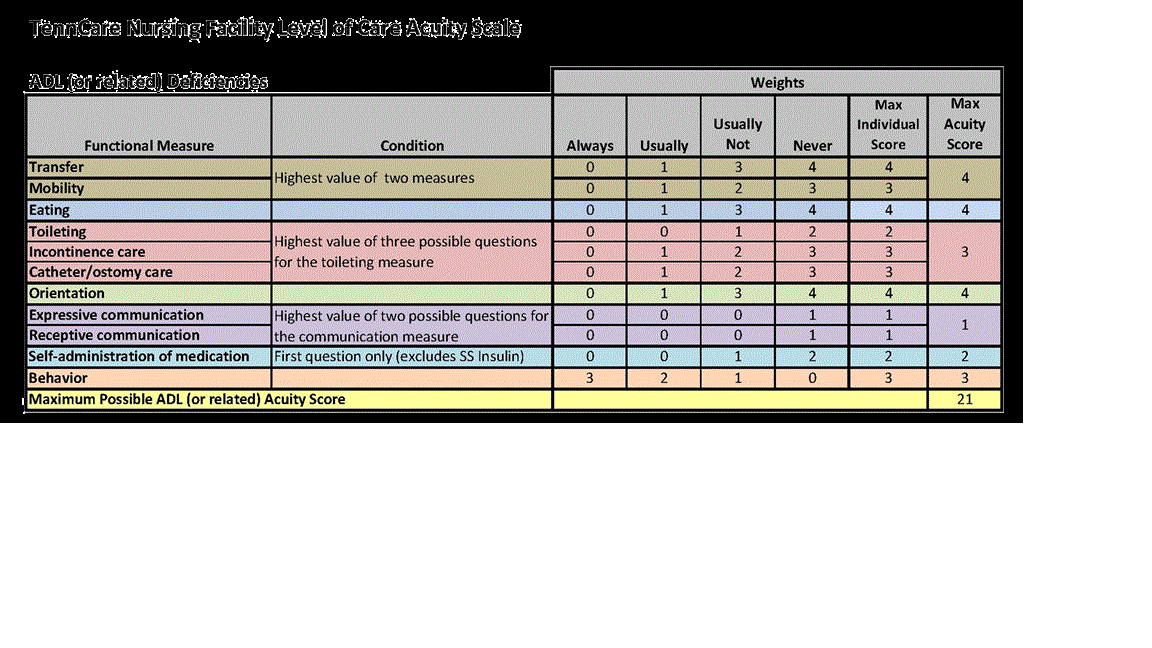I’ve written on this topic before, but the situation can be so serious for those that are affected, I wanted to discuss it again.
On July 1, 2012, the Tennessee Bureau of TennCare (Tennessee’s version of Medicaid) adopted new guidelines to determine who would be medically eligible for Medicaid. They are called LOC (“Level of Care”) guidelines. At the bottom of this post is the grid that the State uses. Take a minute to look at it.
Here’s how it works in practice. A hypothetical elderly, frail couple is in a nursing home in my area. They are 96 and 92 years of age. Until last summer, they were doing pretty well with home health aides a few days a week. Both are suffering from dementia.
In the summer, mom suffered a mild stroke, fell, fractured her leg and separated her shoulder. In the process of falling, she knocked her husband down. Since then, he’s had gall bladder surgery and episodes of kidney failure.
The nursing home submitted an application for TennCare and a medical records. On the Pre-Admission Evaluation (“PAE”) from the State, however, each of them has now scored below the magic number of 9, which is required to qualify for nursing home care.
In this hypothesis, here’s a guess about how the PAE is determined (the State would not, in a situation like this, explain how it arrives at this type of score). Neither of them can ever transfer from bed to wheelchair to toilet. They should each get a “4” under “Transfer and Mobility” for that. Since they can’t get to the toilet, they should each get the maximum score of “2” under “Toileting.” Dad has a catheter, so he should get one additional point. Mom sometimes refuses to eat, so she could get a point there. Since, according to the State, they each score 7, mom and dad are apparently scoring nothing for their dementia.
Because they can put medicine in their mouths if someone puts the medicine in their hands, they get no points there. Ditto for food–if they can put it in their mouths, no points.
The point is this. My hypothetical couple is utterly immobilized and confused. If they are sent back to their homes, even with the $15,000 per year each allotted for Home and Community Based Services, they will not be able to make it. They will subsist until something bad happens to each of them.
This hypothetical couple has children who work, but who are not in a position to quit their jobs or pay their parents’ nursing home bill. Mom and Dad have some assets, not a lot, but face using them all and being destitute very quickly and still not being medically qualified for Medicaid.
I hope that this hypothetical puts a human face on a grid. Fortunately, if this couple finds a lawyer specializing in Elder Law, the PAE can be appealed.

